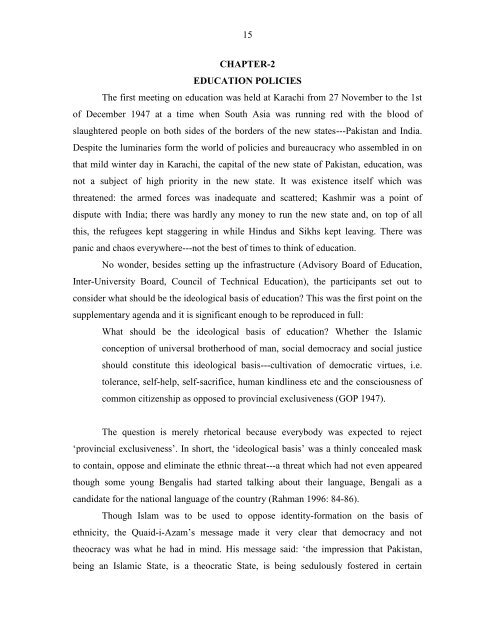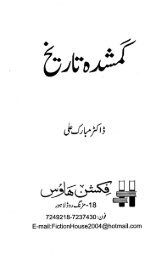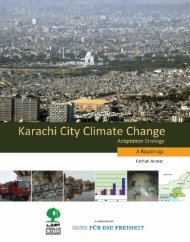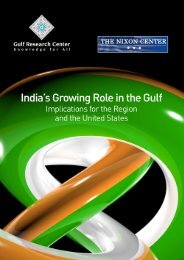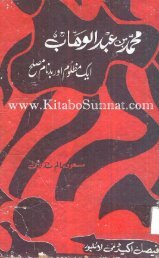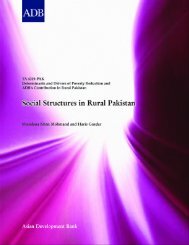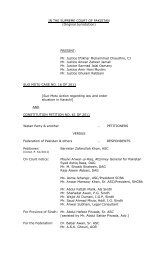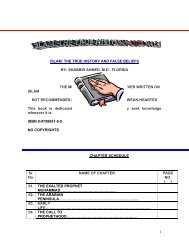DENIZENS OF ALIEN WORLDS
danizen1
danizen1
- No tags were found...
Create successful ePaper yourself
Turn your PDF publications into a flip-book with our unique Google optimized e-Paper software.
15<br />
CHAPTER-2<br />
EDUCATION POLICIES<br />
The first meeting on education was held at Karachi from 27 November to the 1st<br />
of December 1947 at a time when South Asia was running red with the blood of<br />
slaughtered people on both sides of the borders of the new states---Pakistan and India.<br />
Despite the luminaries form the world of policies and bureaucracy who assembled in on<br />
that mild winter day in Karachi, the capital of the new state of Pakistan, education, was<br />
not a subject of high priority in the new state. It was existence itself which was<br />
threatened: the armed forces was inadequate and scattered; Kashmir was a point of<br />
dispute with India; there was hardly any money to run the new state and, on top of all<br />
this, the refugees kept staggering in while Hindus and Sikhs kept leaving. There was<br />
panic and chaos everywhere---not the best of times to think of education.<br />
No wonder, besides setting up the infrastructure (Advisory Board of Education,<br />
Inter-University Board, Council of Technical Education), the participants set out to<br />
consider what should be the ideological basis of education? This was the first point on the<br />
supplementary agenda and it is significant enough to be reproduced in full:<br />
What should be the ideological basis of education? Whether the Islamic<br />
conception of universal brotherhood of man, social democracy and social justice<br />
should constitute this ideological basis---cultivation of democratic virtues, i.e.<br />
tolerance, self-help, self-sacrifice, human kindliness etc and the consciousness of<br />
common citizenship as opposed to provincial exclusiveness (GOP 1947).<br />
The question is merely rhetorical because everybody was expected to reject<br />
‗provincial exclusiveness‘. In short, the ‗ideological basis‘ was a thinly concealed mask<br />
to contain, oppose and eliminate the ethnic threat---a threat which had not even appeared<br />
though some young Bengalis had started talking about their language, Bengali as a<br />
candidate for the national language of the country (Rahman 1996: 84-86).<br />
Though Islam was to be used to oppose identity-formation on the basis of<br />
ethnicity, the Quaid-i-Azam‘s message made it very clear that democracy and not<br />
theocracy was what he had in mind. His message said: ‗the impression that Pakistan,<br />
being an Islamic State, is a theocratic State, is being sedulously fostered in certain


